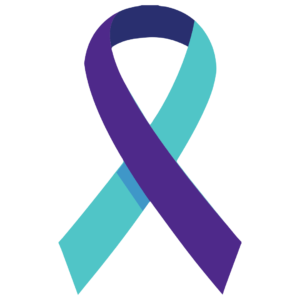What is mental health and why is it important for you?
What is mental health and why is it important for you?
Mental health is a way of thinking that affects your thoughts and actions. It helps determine how you handle stress and relate to others. It is important at every life stage, from childhood and adolescence through adulthood. Mental health is just as important as your physical health because poor mental health that is not looked after can lead to some chronic health conditions over time.
Can mental health change over time?
Your mental health can change over time and can depend on the resources available to you. An example of this could be an individual who is experiencing economic hardship. As a result of their situation, they can experience poor mental health.
What are some of the causes of a mental illness?
Some of the causes could be related to biological or genetic factors such as chemical imbalances in the brain. Some other causes could be early childhood traumas such as abuse, sexual assault or witnessing violence. Other factors that can lead to mental illnesses can be the excessive use of alcohol or drugs or feelings of prolonged isolation.
What is a stigma and how does it relate to mental illness?
A “stigma” is a set of negative and unfair beliefs that a society or group of people have about something. Stigma can arise from a lack of understanding or inaccurate information about mental illness. As a society, we have made strides towards trying to reduce the negative view of those with mental illness, however there is always more work that can be done.
How does one challenge mental health stigma?
The best way for you to prevent stigma is by speaking openly about mental health. Educating yourself on the mental illness and getting informed can help reduce stigma. Showing compassion to your family or friends who are suffering also helps. For many mental health disorders, therapy and psychiatry have proven to be effective in reducing stigma and achieving well-being.
Reach out to our intake coordinator at 609-987-8100 and dial 4 to inquire about speaking to a licensed therapist.
Elana Silverberg, MSW, Clinical Social Work Intern





 Today’s threat on TikTok for potential school violence has spurred widespread concern and anxiety.
Today’s threat on TikTok for potential school violence has spurred widespread concern and anxiety. 



 Light in the Midst of Darkness: Chanukah for those who are bereaved
Light in the Midst of Darkness: Chanukah for those who are bereaved According to the National Institutes of Health (NIH), 35% of Americans who experience serious mental illness do not receive treatment; when we focus on those who experience substance use disorders the number is closer to 90% (Volkow et al., 2021). Given these high numbers it is crucial that we look for ways to remove barriers to accessing mental health care. While we often hear messages that promote the importance of mental health, there is also a long history in our society of treating mental illness and substance use as evidence of personal or moral failure. If we genuinely care about reducing the burden of mental illness on individuals, families, and society, then we must acknowledge that the stigma created by this mindset of mental illness and substance use as a character flaw can lead to barriers in accessing treatment for many people.
According to the National Institutes of Health (NIH), 35% of Americans who experience serious mental illness do not receive treatment; when we focus on those who experience substance use disorders the number is closer to 90% (Volkow et al., 2021). Given these high numbers it is crucial that we look for ways to remove barriers to accessing mental health care. While we often hear messages that promote the importance of mental health, there is also a long history in our society of treating mental illness and substance use as evidence of personal or moral failure. If we genuinely care about reducing the burden of mental illness on individuals, families, and society, then we must acknowledge that the stigma created by this mindset of mental illness and substance use as a character flaw can lead to barriers in accessing treatment for many people. Guilt is a normal, healthy emotion. Experiencing it when you’ve hurt someone or when you’ve made a mistake is a good sign—it means you have a conscience. But sometimes, you may experience unjustified guilt.
Guilt is a normal, healthy emotion. Experiencing it when you’ve hurt someone or when you’ve made a mistake is a good sign—it means you have a conscience. But sometimes, you may experience unjustified guilt.
